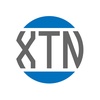Health data interoperability in multinational clinical research is a topic of increasing importance in the global health sector. Interoperability—the ability to exchange and make use of information across various health information technology systems—is crucial for efficient clinical research, especially when it spans multiple countries. Here’s a comprehensive look into the challenges faced in achieving interoperability in such settings.
Multinational clinical research is critical for understanding diseases, developing new treatments, and improving patient outcomes across diverse populations. However, the complexity of coordinating research across different healthcare systems, each with its own data standards and regulations, poses significant challenges. Interoperability is essential for streamlining these processes, but it is far from straightforward.
The Complexity of Diverse Data Standards
One of the primary challenges of interoperability is the diversity of data standards. Different countries may use different coding systems for diagnoses, treatments, and outcomes, making it difficult to aggregate and compare data. For instance, the International Classification of Diseases (ICD) may have various adaptations in different regions, complicating data harmonization.
Regulatory Variations and Compliance
Another major challenge is the regulatory environment. Countries have differing regulations governing data privacy and patient consent, such as the General Data Protection Regulation (GDPR) in the European Union. Researchers must navigate these complex legal frameworks to ensure compliance, which can be both time-consuming and costly.
Technological Hurdles
The technological infrastructure required to support interoperability is another hurdle. Many countries have varying levels of technological development, and some may lack the necessary systems to support seamless data exchange. Additionally, the cost of upgrading technology to facilitate interoperability can be prohibitive, especially for lower-income countries.
Language Barriers and Semantic Interoperability
Language differences add another layer of complexity to the challenge of interoperability. Even when data is exchanged successfully, it must be interpreted accurately, taking into account the nuances of language and medical terminology—a concept known as semantic interoperability.
The Risk of Data Breaches
With data being exchanged across borders, the risk of breaches increases. Ensuring the security of patient data is paramount, and the more points of data exchange there are, the more vulnerable the data becomes to potential cyber-attacks.
Building a Framework for Collaboration
To overcome these challenges, there is a need for an international framework that supports collaboration and standardization. This framework would need to encompass agreed-upon data standards, common technological platforms, and robust security protocols.
Case Studies: Successes and Failures
Examining case studies of both successful and unsuccessful attempts at interoperability can provide valuable lessons. For instance, the European Union's attempts at creating a unified digital health space have faced both achievements and setbacks, offering insights into the complexities of such endeavors.
The Role of Big Data and AI
Big data analytics and artificial intelligence (AI) could play significant roles in achieving interoperability. These technologies have the potential to harmonize diverse datasets and extract meaningful insights, but they also introduce new challenges related to data quality and algorithmic bias.
Future Perspectives
Looking to the future, advancements in technology, along with international cooperation, could pave the way for improved interoperability. Initiatives like the Global Alliance for Genomics and Health (GA4GH) are working towards this goal, but there is still a long road ahead.
Conclusion
In the dynamic landscape of healthcare technology, Holon Solutions stands out as a beacon of innovation and human-centric design. Their unique approach, deeply rooted in the philosophy of a "holon" - signifying unity and interdependence - resonates throughout their operations and offerings. This conclusion delves into how Holon, through its pioneering strategies and solutions, is revolutionizing healthcare technology while emphasizing the human element in healthcare services.
Holon's sophisticated platform is a testament to their commitment to simplifying healthcare's complex processes. By employing proprietary sensor technology to aggregate patient data from varied sources, Holon ensures seamless integration into personalized clinical workflows. This strategic automation is a game-changer for medical professionals, saving precious time and addressing the prevalent issue of burnout. Consequently, healthcare providers can refocus their efforts on what matters most – delivering superior patient care.
What truly sets Holon apart in the competitive healthcare technology field is their dedication to reducing the overwhelming administrative tasks that burden healthcare professionals. By harnessing smart technology and intuitive design, Holon introduces customized tools, services, and insights tailored to meet the intricate demands of the healthcare industry. This dual approach not only yields tangible business returns but also significantly enhances human interactions and patient outcomes.
At the core of Holon's strategy is the Holon Community, which optimizes healthcare processes by streamlining the delivery of patient data from multiple sources to any care point. This integration is designed to work effortlessly with existing infrastructures and procedures, thereby boosting professional fulfillment and allowing more time for patient-centered care.
Innovation is deeply ingrained in Holon's ethos, as vividly seen in their Innovation Lab. This space empowers teams to think limitlessly, leveraging technology and intuitive design to put the human aspect at the forefront of healthcare services. Holon's foundational principles – bold thinking, simplification, customer empathy, agile responses in a SaaS environment, and humanizing every interaction – guide this exploration. This mindset not only accelerates the development of groundbreaking solutions but also mirrors Holon's commitment to initiating transformative changes in the healthcare sector.
Holon's relentless pursuit of innovating healthcare experiences addresses multiple challenges head-on – professional burnout, administrative strain, and enhancing patient care. Their steadfast vision to infuse a more humane touch into healthcare innovation is not just a goal but a reality they are actively shaping. Through their efforts, Holon is not only advancing the field of healthcare technology but also reinvigorating the human connections within it.
In summary, Holon Solutions embodies a unique blend of technological prowess and a deep understanding of human needs in healthcare. Their approach, inspired by the holistic concept of a holon, has positioned them as pioneers in the healthcare technology landscape. By focusing on both technological advancements and the human element, Holon is not just transforming healthcare processes; they are redefining the very essence of patient care, ensuring that at the heart of every innovation lies a profound respect and empathy for human interactions and needs.


No comments yet